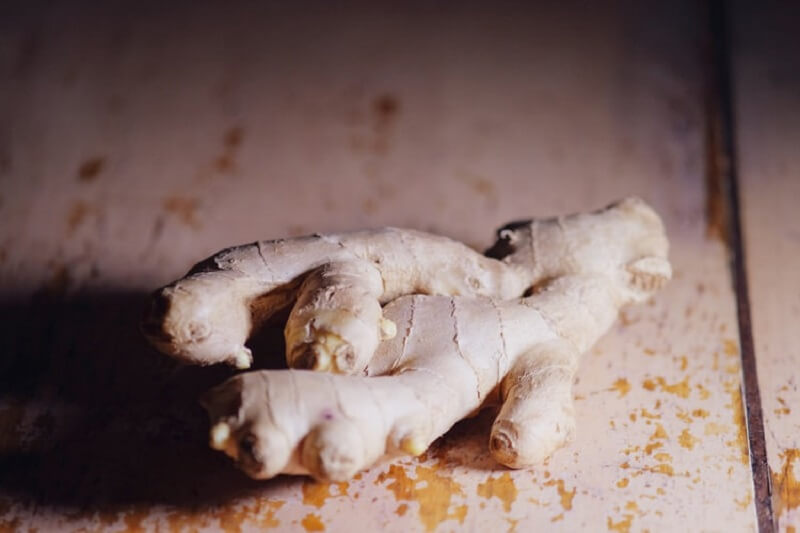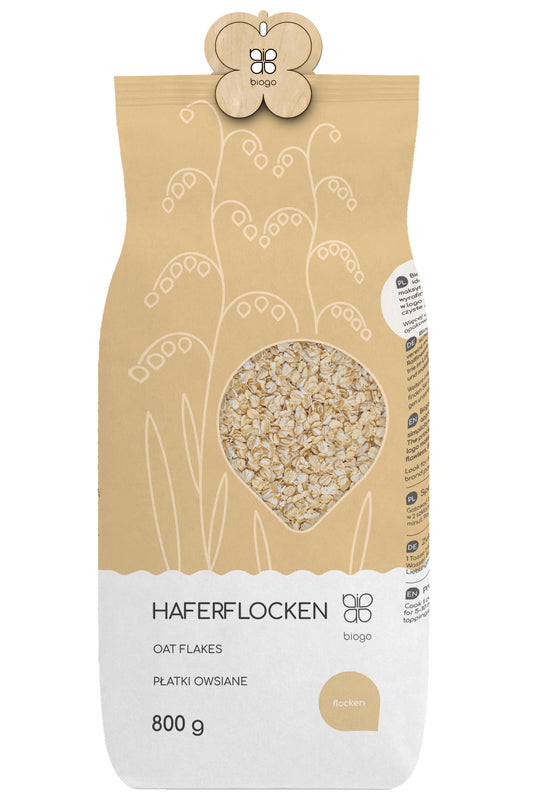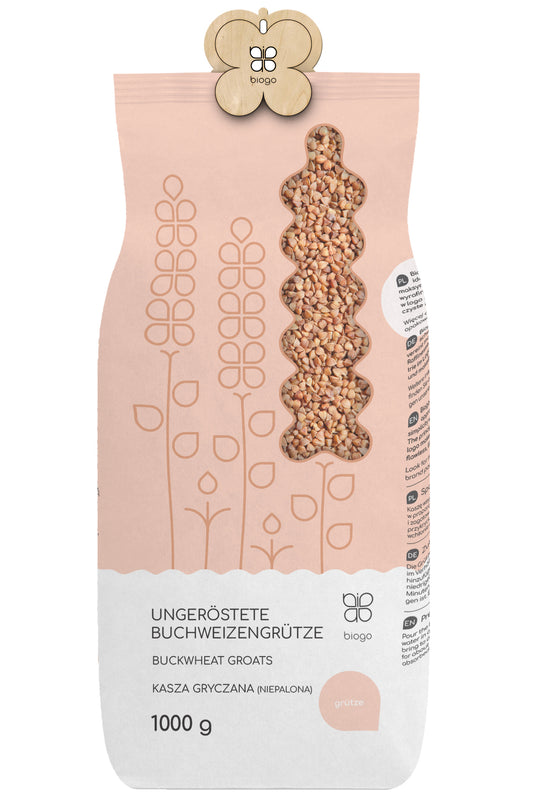CONTENTS
- A brief history of ginger
- Ginger as a spice
- Nutritional properties of ginger rhizomes
- Ginger for colds
- Ginger for weight loss
- Ginger for diabetes and insulin resistance
- Ginger for the circulation
- Ginger for digestive problems
- Analgesic properties of ginger
- Ginger - Contraindications
- Summary
The first mention of ginger dates back to around 1000 BC. Asian peoples were already familiar with this plant, and its rhizome was the object of their interest. Currently, ginger is virtually nonexistent in the wild. It has become a typical cultivated plant. It grows up to 100 centimeters tall and is a perennial, closely related to turmeric and cardamom. What we know today as ginger is the branched rhizome of this plant. It is valued for a number of health-promoting properties, as well as for its nutritional and spice qualities.
A brief history of ginger
The history of ginger is truly long, and it's not entirely clear whether it wasn't known earlier. It probably originated in Melanesia, from where it spread to Asia. It was known in ancient times among the peoples of the Mediterranean, India, and even Arab countries. Its healing properties were first described in detail in the 6th century BC by Suśruta, who was one of India's most respected physicians at the time. The Chinese considered ginger to be part of the element of fire because it provides strength and energy. They used it as an aphrodisiac.
In Europe, ginger gained popularity thanks to the Arab physician Avicenna. He described the plant's properties in even greater detail. Thanks to this, the rich and noble already used its healing properties in the Middle Ages.
The scientific description of the plant was made by the English botanist William Roscoe, and the Latin name of the species, Zingiber officinale, dates back to the turn of the 18th and 19th centuries. During this time, ginger's use as a spice and medicinal raw material became widespread.
Ginger as a spice
Ginger is one of the world's most popular spices. It can be used dried, pickled, or candied. It is particularly popular in Asian and Arabic countries. It is an essential ingredient in curry spices, but is also added to flavor soups, sauces, and meat. It is an indispensable ingredient in sweet baked goods and beverages. It is added to mulled beer, wine, coffee, and mead. Ginger has a slightly spicy, burning, and sweet flavor. This makes it a highly versatile spice in any kitchen.
Nutritional properties of ginger rhizome
Ginger root contains all basic nutrients such as proteins, fats, carbohydrates, fiber, as well as vitamins and minerals. It is also a rich source of phytonutrients, i.e., substances responsible for its characteristic taste and smell. Ginger's intense aroma, with a fresh, slightly sweet, and slightly woody note, is due to zingiberol—a component of the essential oil. 100 grams of fresh rhizome contains about 80 kcal. It contains vitamins B, as well as C, E, A, and K. In terms of minerals, it is rich in calcium, phosphorus, iron, and potassium.
Ginger for colds
Ginger root has detoxifying, pain-relieving, antiviral, and antibacterial properties. This is all thanks to gingerols, which are also powerful antioxidants. These properties make ginger an excellent natural immune booster. An additional benefit is its warming effect, which is perfect for colds or flu, but also as a preventative measure when the body cools down. A ginger infusion can also be helpful for sore throats and sinus pain. The essential oils it contains have an expectorant effect and can thin nasal secretions, helping us expel them more effectively.
Ginger for weight loss
How can ginger help with weight loss? First of all, ginger promotes digestion—the oil contained in ginger rhizome can help with indigestion and problems with intestinal peristalsis. All of these activities can positively influence the acceleration of metabolism, which, in turn, facilitates the loss of unnecessary weight. Furthermore, ginger extract, for example, in the form of oil or infusion, reduces appetite. This allows you to limit snacking between meals, thus consuming fewer calories. Therefore, it's worth reaching for water with added ginger, which not only enriches its flavor but can also help us achieve our dream figure.
Ginger for diabetes and insulin resistance
There are many positive research findings on the topic of "ginger and diabetes." Ginger root has been shown to have hypoglycemic properties, meaning it can help lower blood sugar levels, both fasting and postprandial. These studies used doses of 100 mg to 500 mg of aqueous ginger extract per kilogram of body weight. This effect is due to the fact that the active ingredients in the rhizome increase tissue sensitivity to insulin. As a result, less of this hormone is needed to maintain adequate glycemia. This is especially important for preventing diabetes in the future. Ginger has also been shown to reduce the absorption of glucose from the intestine into tissues and limit the activity of some enzymes involved in the metabolism of this simple sugar. It is particularly effective at reducing the action of pancreatic amylase.
Ginger for the circulation
The health-promoting properties of ginger can also be used to prevent cardiovascular diseases. Scientists have reported a possible effect on lowering blood pressure. Therefore, we can attribute an anti-aggregation or anti-atherosclerotic effect to it. More specifically, it can lower the amount of LDL cholesterol in the blood, but also has a positive effect on the condition of the blood vessels and the heart. Ginger also inhibits platelet aggregation, thus protecting against the formation of blood clots.
Ginger for digestive problems
One of the most common uses of ginger is to support the digestive system. Thanks to its choleretic properties, it facilitates digestion. It can also reduce flatulence and stimulate intestinal and gastric peristalsis. It slightly supports the secretion of hydrochloric acid and saliva, which are also very important. It can also reduce nausea, which significantly affects the well-being of pregnant women, but not only that.
Analgesic properties of ginger
Ginger also has analgesic properties—ginger-based medicines are used to treat migraines and menstrual pain. It also has a decongestant effect due to its diuretic properties. It can also help with rheumatic joint pain and relieve menstrual pain. Ginger oil also has a relaxing effect. It is especially helpful for muscle pain. For this reason, ginger compresses and massages, including its participation in sports, have found widespread use.
Ginger - Contraindications
Like any substance, ginger can cause unwanted side effects. If taken orally, especially in excessive amounts, it can cause side effects such as diarrhea, abdominal pain, bloating, and heartburn. Furthermore, ginger-containing supplements should be limited in people suffering from digestive disorders. These include stomach and duodenal ulcers, as well as reflux disease and hyperacidity. Ginger irritates the digestive system of people suffering from these conditions. Pregnant women should limit their consumption of ginger.
Patients who regularly take anticoagulants should also be cautious. This interaction can lead to a significant drop in blood pressure well above normal. The same applies to medications for hypertension and hypotension. Due to the influence of the compounds contained in ginger, such individuals should also limit its consumption.
Despite ginger's positive effect on diabetes prevention, it is recommended that it be restricted to patients treated with insulin. This is because such a combination can cause significant hypoglycemia and fluctuations in blood sugar levels, which is not particularly beneficial.
Summary
Ginger and preparations containing its extract are a treasure trove of health-promoting substances. However, it should be remembered that it is not a medicine per se. It is best used as a supplement to the daily diet and to diversify dishes. However, this does not change the fact that it can be a source of many valuable substances for us and is worth consuming. Let's not forget the possible side effects of its use. If you have any doubts about taking it, nothing can replace a consultation with your doctor.
THE PUBLISHER'S CHOICE
Dried dates 1 kg BIOGO
- £4.00
£5.00- £4.00
- Unit price
- / per
Peeled sunflower seeds 1 kg BIOGO
- £3.00
£4.00- £3.00
- Unit price
- / per
Dried organic mango 400 g BIOGO
- £10.00
- £10.00
- Unit price
- / per
Dried White Mulberries 500 g ORGANIC
- £6.00
£7.00- £6.00
- Unit price
- / per
Organic Ground Turmeric 500 g BIOGO
- £6.00
- £6.00
- Unit price
- / per
Oat flakes 800 g BIOGO
- £3.00
£3.00- £3.00
- Unit price
- / per
Milk thistle seeds 1 kg BIOGO
- £4.00
- £4.00
- Unit price
- / per
Popcorn (corn kernels) organic 1 kg BIOGO
- £6.00
- £6.00
- Unit price
- / per
Organic cashew nuts 1 kg BIOGO
- £18.00
- £18.00
- Unit price
- / per
Unpeeled buckwheat groats 1 kg BIOGO
- £3.00
£3.00- £3.00
- Unit price
- / per







































































































































